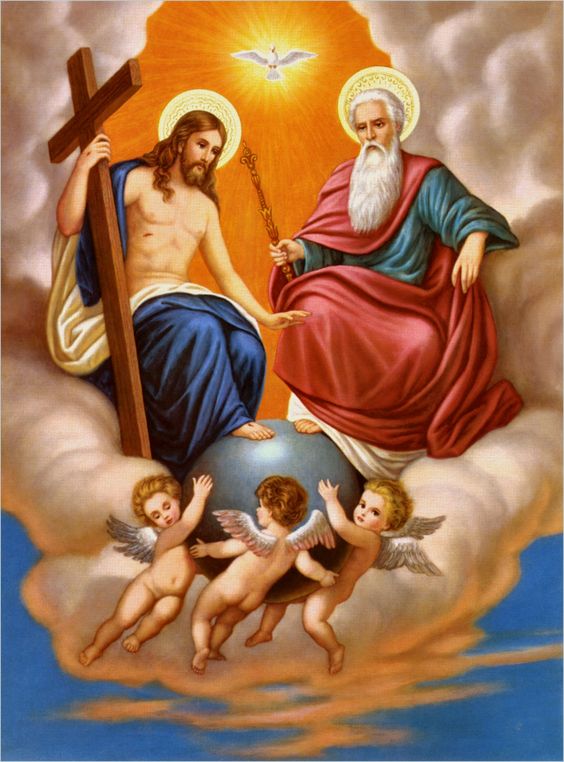We do believe. We are right when we say that we are believers. But when we assert that we are believers, we have also the responsibility to answer a supplementary question. What do we believe in? Unless and until we answer this question in a satisfactory manner, we cannot say that we have overcome the great chasm that separates a believer from a non-believer.
To start with, every religion and every philosophy provide something solid for their followers to believe. Those who believe in God have their faith in an omnipotent, omnipresent and omniscient supernatural power. Those who profess atheism, in fact believe in the human power that drives this world. There are others for whom science is god. They surrender their free will to this god of their own making.
But there is a certain gray area in the field of faith. Unfortunately we ignore it conveniently, and do not bother much about the nuances and intricacies of the basics of our faith. We simply take it for granted. If not addressed properly, this will land us in an unenviable situation where a fierce internal struggle between what we know and what we should know awaits us. This confusion, or rather ambivalence in matters of faith is one of the reasons for many of us failing to confess our faith in its fullness.
For a Christian, there should not be any dearth of clarity as to what he or she believes in. We have our Creed, a beautiful profession of the faith. What all things we believe as Christians are stated in the Creed in unequivocal terms.
The Apostles’ Creed opens with the confession of our faith in God the Father.
‘I believe in God, the Father almighty, creator of heaven and earth.’
It is as simple as it looks. Our faith is in a God who is almighty, who is our Father and who is the author of creation. We have no issues with it at the theoretical level. But when we are asked to make this belief the cornerstone of our Christian life, it is not as simple as we think. Because faith in a god as confessed in the Creed forbids us from believing in many other things.
We cannot believe that this universe is not a created one. We cannot believe that there are more than one gods. We should confess that God is our Father. It follows that we are His children. If we are children, then we are created in his image and likeness. If He is our father, He has every right to discipline us. As a good father, it is in His domain to decide what is good and what is bad for us. We, the children of God, are supposed to be obedient to our Father just the same way good children do.
If God is our Father, the Earth cannot be our mother. Any teaching elevating the earth to the status of a deity is totally alien to Christian faith. We have no semi-gods or demigods. We have only one God!
If God is the creator of heaven and earth, nothing can exist without or beyond God. In other words, it is He who decides the destiny of everything that He created. If we believe in such a god, we cannot associate ourselves with organizations having a soft corner for atheism, nor can we subscribe to any school of thought that professes that man himself is god. We should admit that there always exists a certain separation between the Creator and the created. Man can never become God, because it is beyond our capabilities to be like God. Any attempt towards this direction will ruin us and jeopardize our salvation. This is the biggest danger in following New Age philosophies. They try to highlight the power of individual human beings, giving little space for divine intervention, and exhort their followers to realize the power that is within them so as to elevate themselves to the divine realm. But we know that there are no shortcuts to perfection, because only God is perfect. We cannot become gods nor can we author our destiny. If anybody tells you that the immense power that is contained within us, once unleashed, will take us to a level of spiritual enlightenment that was hitherto unknown, it is a lie. It is the marketing strategy of the devil whose pet theme always has been to build a heaven without God!
Though we cannot become gods, God can become man, because he is omnipotent. If our belief is in such a god, then there should be no doubt in our minds that God did come to us in flesh. This is the reason we confess our faith in the incarnate Word immediately after professing our faith in God the Father while reciting the Creed.
What we see and experience is a created world. Since it has a beginning, it should have an end too. Any philosophy that tells us that this universe will exist forever is diametrically opposite to what Christians should believe.
Our God is omniscient, and the knowledge of the divine realm is reserved for Him and Him alone. We are not authorized to seek this knowledge until heaven permits us. We have before us the experience of a woman and her husband who desired to know forbidden things. The poison of desire for the forbidden is in our veins too as we are their progeny.
Idols are nothing before our God. They have mouths, but do not speak. They have eyes, but do not see. So a true believer has nothing to do with idols. We should not make any idols for ourselves. Money and wealth should not substitute God in our mind. There is no scope for worshiping two gods simultaneously.
Satan is an usurper by nature. He knows that he can never occupy the original throne of God. If you worship Satan, or are in any way lenient towards things demonic, you are far from the faith that we confess in the Creed. Sorcery and witchcraft with all its ancillaries are anathema to a believer. Worshiping the elements or the powers of nature goes against our faith in the true God. When we give importance to superstitions, we are far from our belief in an omnipotent God. When we value someone more than God, we make him or her another god and place this idol in our heart, which unfortunately does not have the space to accommodate two gods. The result will be the exit of the true God from our heart. When we try to please others by diluting our faith in the true God, we are denying the uniqueness of God, because God will never permit His glory to be shared with others. Religious syncretism, in all its forms, is a direct attack against the faith in one God, creator of heaven and earth. Sadly, man sacrifices the faith in God the Father, who created heaven and the earth, at the altar of religious syncretism for pleasing his neighbors.
Pride is a sin that goes directly against the belief in the omnipotence of God. A man of arrogance thinks that he can do anything by his own power. To recite the Creed sincerely means shunning arrogance and humbling ourselves before God.
Knowledge is good. But when mixed with arrogance, it becomes a dangerous and highly poisonous concoction. The knowledge that God is all powerful did not help Satan, because his arrogance prevented him from offering the worship due to God.
Let us say proudly: ‘I believe in God, the Father almighty, creator of heaven and earth’. And at the same time let us not forget that the confession of our faith in this God casts upon us the responsibility to flee from anything that contradicts our faith.
Let us thank our Father with words borrowed from Jesus. ‘I thank you, Father, Lord of heaven and earth, because you have hidden these things from the wise and the intelligent and have revealed them to infants’ (Mt 11:25). Because the faith in ‘God, the Father almighty, creator of heaven and earth’ is reserved for those who are infants in spirit.

















